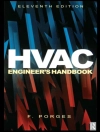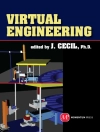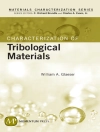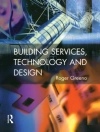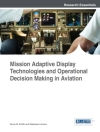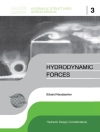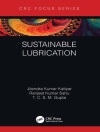This book gives a comprehensive overview of the rapidly evolving field of three-dimensional (3D) printing, and its increasing applications in the biomedical domain. 3D printing has distinct advantages like improved quality, cost-effectiveness, and higher efficiency compared to traditional manufacturing processes. Besides these advantages, current challenges and opportunities regarding choice of material, design, and efficiency are addressed in the book. Individual chapters also focus on select areas of applications such as surgical guides, tissue regeneration, artificial scaffolds and implants, and drug delivery and release. This book will be a valuable source of information for researchers and professionals interested in the expanding biomedical applications of 3D printing.
Table of Content
Poly-Lactic-Acid : A Potential Material for Bio-Printing Applications.- Current challenges and blooms in 3D printing of biomedical devices.- Development of porous scaffold for Bone Tissue Engineering Applications.- Current Advances and Future Pathways of 3D Printing in Bone Tissue Engineering.- Novel applications of FDM 3D printing in science.- Experimental investigations of partial dentures prepared by hybridization of additive manufacturing and chemical vapor smoothing assisted induction casting.- Recent Advances in Additive Manufacturing of Bio-inspired Materials.- 3D Metal Printing a game changer for future manufacturing realm.- 3D Printing in Tissue Engineering: A State of the Art Review of Technologies and Bio-materials.- Designing and additive manufacturing of metallic porous scaffolds for orthopedic implants.- Additive Manufacturing : Current Concepts, Methods And Applications In Oral Health Care.- Computer-aided-design of subject-specific dental instruments for preoperative virtual planning in orthognathic surgery.- Customization of Electrospinning for Tissue Engineering.- Additive Manufacturing of Bio-materials.- 3D Printing: Blooms, Challenges and Advantages of additive manufacturing over traditional manufacturing.- Thermal inkjet 3D printing of metals and alloys: current status and challenges.
About the author
Dr. Sunpreet Singh is researcher in NUS Nanoscience & Nanotechnology Initiative (NUSNNI). He has received Ph.D in Mechanical Engineering from Guru Nanak Dev Engineering College, Ludhiana, India. His area of research is additive manufacturing and application of 3D printing for development of new biomaterials for clinical applications. He has contributed extensively in additive manufacturing literature with publications appearing in Journal of Manufacturing Processes, Composite Part: B, Rapid Prototyping Journal, Journal of Mechanical Science and Technology, Measurement, International Journal of Advance Manufacturing Technology, and Journal of Cleaner Production. He has authored 10 book chapters and monographs. He is working in joint collaboration with Prof. Seeram Ramakrishna, NUS Nanoscience & Nanotechnology Initiative and Prof. Rupinder Singh, manufacturing research lab, GNDEC, Ludhiana. He is also editor of 3 books- ‘Current Trends in Bio-manufacturing; “3D Printing in Biomedical Engineering”; and ‘Biomaterials in Orthopaedics and Bone Regeneration – Design and Synthesis. He is also guest editor of 3 journals- special issue of “Functional Materials and Advanced Manufacturing”, Facta Universitatis, series: Mechanical Engineering (Scopus Indexed), Materials Science Forum (Scopus Indexed), and special issue on “Metrology in Materials and Advanced Manufacturing”, Measurement and Control (SCI indexed).
Dr. Chander Prakash is Associate Professor in the School of Mechanical Engineering, Lovely Professional University, Jalandhar, India. He has received Ph.D in mechanical engineering from Panjab University, Chandigarh, India. His area of research is biomaterials, rapid prototyping & 3-D printing, advanced manufacturing, modeling, simulation, and optimization. He has more than 11 years of teaching experience and 6 years’ of research experience. He has contributed extensively to the world in the titanium and magnesium basedimplant literature with publications appearing in Surface and Coating Technology, Materials and Manufacturing Processes, Journal of Materials Engineering and Performance, Journal of Mechanical Science and Technology, Nanoscience and Nanotechnology Letters, Proceedings of the Institution of Mechanical Engineers, Part B: Journal of Engineering Manufacture. He has authored 60 research papers and 10 book chapters. He is also editor of 3 books: ‘Current Trends in Bio-manufacturing’; “3D Printing in Biomedical Engineering”; and ‘Biomaterials in Orthopaedics and Bone Regeneration – Design and Synthesis. He is also guest editor of 3 journals: special issue of “Functional Materials and Advanced Manufacturing”, Facta Universitatis, Series: Mechanical Engineering (Scopus Indexed), Materials Science Forum (Scopus Indexed), and special issue on “Metrology in Materials and Advanced Manufacturing”, Measurement and Control (SCI indexed).
Prof. Rupinder Singh is Professor in Department of Mechanical Engineering, National Institute of Technical Teachers Training and Research, Chandigarh, India. He has received Ph.D in Mechanical Engineering from Thapar Institute of Engineering & Technology, Patiala, India. His area of research is Non-traditional machining, Additive manufacturing and development of porous biomaterials using 3D printing and rapid prototyping techniques. He has more than 20 years of teaching and research experience. He has contributed extensively to the world in Additive Manufacturing literature with publications appearing in Journal of Manufacturing Processes, Composite Part: B, Rapid Prototyping Journal, Journal of Mechanical Science and Technology, Measurement, International Journal of Advance Manufacturing Technology, and Journal of Cleaner Production. He authored 21 books and 80 book chapters. He has received research grants from various funding agencies such as DST-SERB, AICTE.


